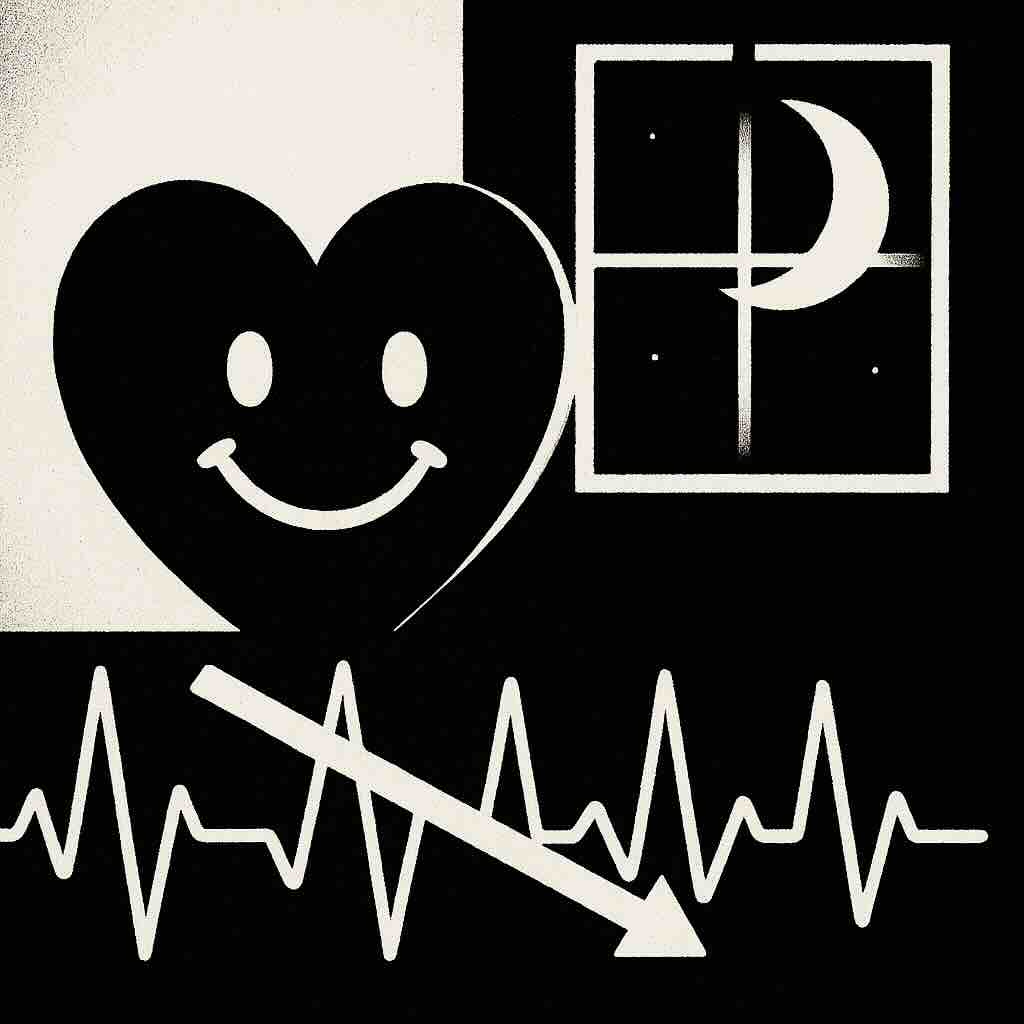Most of us know that maintaining healthy blood pressure is crucial for heart health. But did you know that what happens to your blood pressure while you sleep might be just as important as your daytime readings?
The Natural Nighttime Dip
When we're healthy, our blood pressure (BP) and heart rate (HR) naturally drop during sleep – a phenomenon doctors call "nocturnal dipping." This isn't just an interesting fact; it's a vital sign of your cardiovascular system's ability to relax and recover.
What's normal? Your blood pressure should typically fall by about 10-20% during sleep compared to daytime levels. Your heart rate should show a similar pattern, decreasing during nighttime hours.
When Your Heart Rate or Blood Pressure Doesn't Dip at Night
Research has identified several concerning patterns:
Non-dipping: When your BP or HR falls less than 10% during sleep
Reverse dipping: When BP or HR actually rises during sleep
Both patterns are associated with increased risk of:
Stroke
Small vessel disease (damage to tiny blood vessels in the brain)
Other cardiovascular events
One striking statistic: 69% of patients who suffered an acute stroke showed a nocturnal non-dipping pattern in their blood pressure. This highlights just how important this nighttime measurement can be.
Heart rate variability (HRV) – the variation in time between heartbeats – is another important measure. Lower HRV is associated with poorer autonomic nervous system function and increased health risks.
What You Can Do: Practical Steps
Since nighttime blood pressure patterns matter so much, here are practical steps to improve yours:
Get your heart rate checked during sleep - see more on this below. You can also have your BP checked during sleep but it is more tricky as it requires your doctor to prescribe your wearing a special device 24x7 which will monitor your blood pressure but is likely to disrupt your sleep by inflating a cuff every 30 minutes or so.
Focus on sleep quality - Stick to a regular sleep schedule, create a comfortable sleeping environment, and address any sleep disorders like sleep apnea.
Manage conditions that affect dipping - Conditions like hypertension, diabetes, sleep apnea, and kidney problems can all affect nighttime blood pressure patterns.
Timing of blood pressure medication - Some research suggests that taking certain blood pressure medications in the evening rather than morning may help restore healthy dipping patterns. Always consult your doctor before changing medication timing.
Heart-healthy habits - Regular exercise, stress reduction, avoiding nicotine and limiting caffeine, and eating a heart-healthy diet can all contribute to better blood pressure and heart rate patterns.
Should You Be Concerned?
If you're:
Any age with blood pressure or heart rate that doesn't decrease during sleep
Experiencing poor sleep quality
At high risk for cardiovascular disease
Talk to your doctor about monitoring your nighttime blood pressure patterns.
Simple Way to Monitor Your Nighttime Heart Rate Dip
Ideally you would monitor your both blood pressure and heart rate at night. The only practical way to do it for blood pressure without disrupting your sleep with an inflatable cuff (as of May 2025) is to use the Hilo 24x7 blood pressure bracelet. It uses a PPG sensor and doesn’t have an inflatable cuff. If you decide to purchase it you may consider using the code BreathxAktiia to get a 15% discount.
The easier way is to measure just heart rate at night with an Apple Watch. We integrated Nighttime Heart Rate in the Heart Health Monitor of the BreathNow app so monitoring this parameter has become very easy. This feature is free, please give it a try and let us know what you think.
BreathNow app also allows users to monitor their HRV (both with their Apple Watch and iPhone) and alerts them when HRV dips (which means higher stress).
The Bottom Line
Your blood pressure and heart rate behavior during sleep provides valuable information about your cardiovascular health that daytime measurements alone can't capture. The wearable technology which allows us to monitor blood pressure during sleep without disruption is currently limited only to the Hilo device. Monitoring your nighttime heart rate dip is really easy with Apple Watch.




